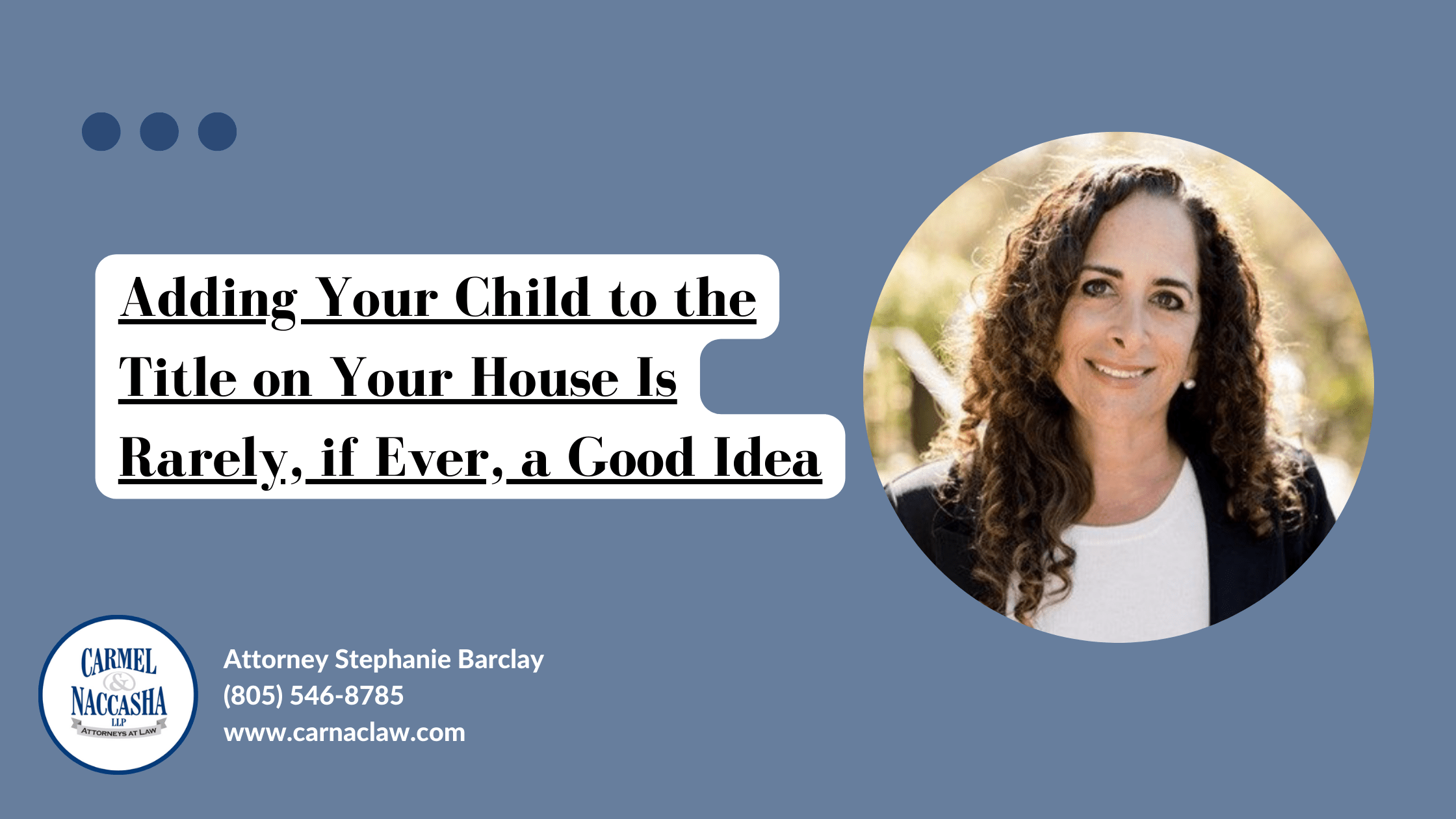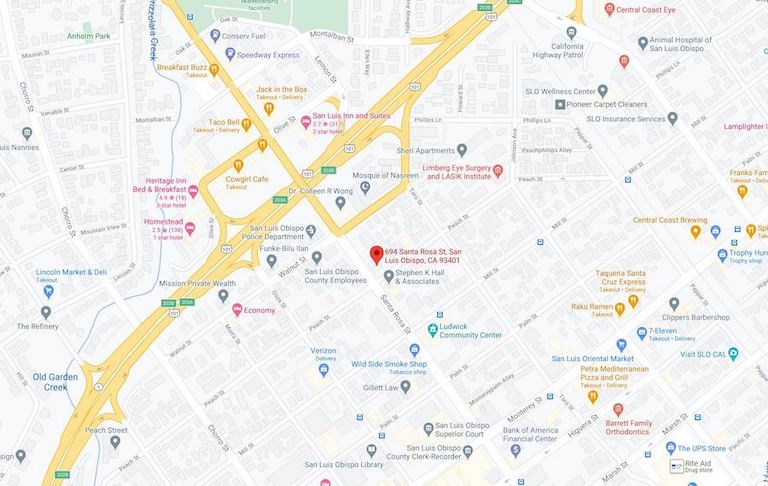When you add your child to the title to your home, you are essentially making them a co-owner of the property. This appeals to people because preparing a quitclaim deed is an easier, less expensive way to avoid probate compared with creating a revocable living trust. While the front-end costs are less expensive, the future costs are usually substantially higher and the risks, almost certainly, outweigh the benefits of adding a child to the title to your home.
Once You Add Someone to the Title, You Can’t Get Them Off Without Their Agreement
Adding a child to the title of your home means they now have legal rights to the property. This can complicate matters if you want to sell the property or make any changes to it in the future. Your child’s consent will be required for any major decisions regarding the property, and disagreements may arise if you have different opinions on how to proceed. If circumstances change and you want to remove your child from the title, you will be unable to do so unless they agree.
You Could Lose Your Home to Your Child’s Creditors
Be aware, adding your child to the title to your home exposes the property to the child’s creditors. If the child faces financial difficulties, causes an accident, or gets into debt, their creditors may have the ability to place a lien on the property. This means that the property could be at risk of being sold to satisfy your child’s debts. This is an important consideration, especially if your child has a history of financial instability.
You Are Probably Giving Your Child Unintended Tax Consequences
Another issue to consider is the capital gains tax – the tax that is paid on the difference between the purchase price of your house when you bought it, and the current sale price. By adding your child to the title of your home during your life, your child inherits your basis (the amount you paid) on the house. Therefore, if your child decides to sell the house after your death, your child will likely incur a capital gains tax for the difference between the price you paid, and sale price. The basis the child inherits is dependent upon the percentage of the gift made during your life.
If rather than adding your child to the title, you kept the property until your death, and then through a trust, transferred the property to your child, your child would pay no capital gains tax. The reason is because upon your death, all assets in your name get a step-up in basis to the fair market value. In other words, your child could sell all of your assets the day after your death and pay no income tax.
Say, for example, you own a home that you purchased in San Luis Obispo County for $100,000 in 1975. In 2023, you decide that rather than setting up a trust, you will simply add your child as a joint tenant on your home so that it passes automatically by right of survivorship and you avoid probate and save money on a trust. So, you quitclaim the property to you and your child as joint tenants in 2023 when your home is worth $1,100,000. When you added your child on to the title to your house, you made a gift (which should be reported on a gift tax return) of one-half the value of the property ($550,000) and one half of your basis ($50,000). If you die in 2024, when the house was still worth $1,100,000, your child would have a new basis of $600,000. That is, your child would receive a step-up in basis on your one-half of the property the child is inheriting ($550,000) but your child’s half-interest would have a basis of $50,000 from your 2023 gift of one-half the property. If your child decided to sell the house in 2024, after you died, for $1,100,000, with a basis of $600,000, your child would incur capital gains in the amount of $500,000, creating a tax liability of potentially more than $100,000.
If, on the other hand, you had decided to keep the property in your revocable trust until your death, the trust transfers the property to your child. Your child would receive a step-up in basis to the fair market value of $1,100,000. Under this scenario, if your child sold the property after your death, the child would pay $0 in income taxes. Because your house was a trust asset, your child will still avoid probate.
A Gift of the Family Home That Favor One Child Often Leads to Family Disagreements and Litigation
Also consider, if you have multiple children and you add only one of them to the home title, it can create tension and disputes among your children. The child, or children, that are not included may feel left out or unfairly treated, which can strain family relationships while you are alive and after you have passed. When estate distributions are unequal among the children, there is a higher likelihood that actions will be challenged, and litigation will occur.
It’s always important to consult with a qualified attorney before making any decisions regarding adding your child to your home title. They can provide personalized advice based on your specific circumstances and help you navigate the potential legal risks involved. They may also suggest alternative estate planning strategies, so that you can achieve your goals without some of the risks associated with adding your child to the home title.
While adding your child to your home title may seem like a convenient way to pass on your property, it often comes with negative legal and tax consequences. It’s crucial to carefully consider the implications and seek professional advice to ensure you make the best decision for your situation.
Carmel & Naccasha Partner Stephanie Barclay, of the firm’s Wills, Trusts & Estate Planning Department, specializes in Elder Law, Elder Abuse Litigation and Probate and Estate Planning. If you have any questions about this article, or for further questions you may have regarding estate planning law, please contact attorney Stephanie Barclay (sbarclay@carnaclaw.com).
About Carmel & Naccasha
Founded in 2004, Carmel & Naccasha has offices in San Luis Obispo and Paso Robles. The firm’s lawyers focus their practice and provide exemplary client services in the areas of business transactions, real property, land use, commercial and employment litigation, trusts and estate planning, municipal law, and insurance coverage.
Contact a Legal Professional
The information provided herein does not, and is not intended to, constitute legal advice; instead, all information, content, and materials are for general informational purposes only. Neither our website, nor this post, is intended to create an attorney-client relationship.
If you have any questions, please contact Carmel & Naccasha, and for more details, read our full disclaimer.



